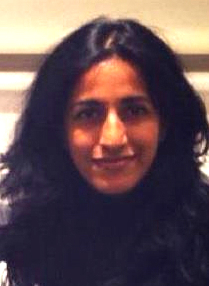
Huh?
The Murder of [CIA Spouse] Mary Pinchot Meyer
Jacob G. Hornberger
Future of Freedom Foundation
Recently by Jacob G. Hornberger: The Kennedy Assassination
In early 1976 the National Enquirer published a story that shocked the elite political class in Washington, D.C. The story disclosed that a woman named Mary Pinchot Meyer, who was a divorced spouse of a high CIA official named Cord Meyer, had been engaged in a two-year sexual affair with President John F. Kennedy. By the time the article was published, JFK had been assassinated, and Mary Pinchot Meyer herself was dead, a victim of a murder that took place in Washington on October 12, 1964.<
The murder of Mary Pinchot Meyer is the subject of a fascinating and gripping new book by Peter Janney, who was childhood friends with Mary Meyer’s three sons and whose father himself was a high CIA official. Janney’s father and mother socialized in the 1950s with the Meyers and other high-level CIA officials.

Janney’s book, Mary’s Mosaic, is one of those books that you just can’t put down once you start reading it. It has everything a reader could ever want in a work of nonfiction – politics, love, sex, war, intrigue, history, culture, murder, spies, racism, and perhaps the biggest criminal trial in the history of our nation’s capital.
Just past noon on the day of the murder, Mary Meyer was on her daily walk on the C&O Canal Trail near the Key Bridge in Washington, D.C. Someone grabbed her and shot a .38-caliber bullet into the left side of her head. Meyer continued struggling despite the almost certainly fatal wound, so the murderer shot her again, this time downward through her right shoulder. The second bullet struck directly into her heart, killing her instantly.
A 21-year-old black man named Raymond Crump Jr., who lived in one of the poorest sections of D.C., was arrested near the site of the crime and charged with the murder. Crump denied committing the crime.
There were two eyewitnesses, neither of whom, however, personally identified Crump. One witness, Henry Wiggins Jr., said that he saw a black man standing over the body and that the man wore a beige jacket, a dark cap, dark pants, and dark shoes. Another witness, William L. Mitchell, said that prior to the murder, he had been jogging on the trail when he saw a black man dressed in the same manner following Meyer a short time before she was killed.






